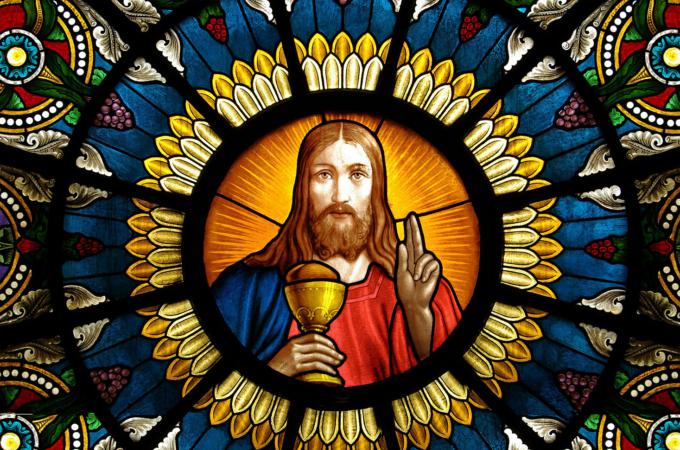Christ is the center of human history
As the coronavirus crisis moves into the background and our attention shifts to ongoing civil unrest, it's a good idea to turn off the constant stream of news and take time to both pray and think. The upheaval we are currently witnessing did not flash upon the scene one day full-blown; it has been simmering for a very long time. And while many of us might be tempted to retreat to a safe place, pull the sheets over our heads and hide until it's all over, I don't believe that's really an option for any committed Christian. This moment in our nation's history must not pass us by, nor will it. But we must do more than just live through whatever unfolds; we must find ways to live it in a manner that is fitting for disciples of Jesus Christ.
History, however, is slippery. It's more than just facts, more than names and places and dates. History is the interpretation of events, and not always as they occurred or by someone who witnessed them. The ancient Greeks understood history as an endless progression of cycles. When Christianity burst on the horizon of the Mediterranean world, it brought with it a distinctly biblical perspective. For Christians, history was linear, not cyclical. When the Son of God became incarnate in the womb of the Virgin Mary, eternity and history intersected. All of time for all time was sanctified. History was the record of humanity's journey from sin and judgment through redemption to union with God. History was not just an account of human activity and human nature, but of divine initiative and will.
Our culture no longer views history in this way. Enlightenment thinkers preferred a watchmaker deity who left the world to human actions and choices. For them, history was progressive and humanity's ingenuity and control over the world was both decisive and growing. Human nature was a stale religious ruse. Man's destiny was shaped by man himself. Every decade brought him closer to his highest aspirations. As successive generations solved the problems of their own eras, the world became more civilized and more humane.
And then came Karl Marx. He posited a narrative of human history that was progressive and linear, but driven by class conflict. He theorized that economic activity necessarily involved exploitation of the many by the few. Eventually, as this conflict intensified over the centuries, workers would overthrow the entire system and create a just society. They would also create a new kind of man, one who embodied the Communist ideal.
The problem is that utopias usually end up far worse than the societies they were intended to correct and replace. Why? Because as Soviet exile Alexander Solzhenitsyn wrote in "The Gulag Archipelago": "The line separating good and evil passes not through states, nor between classes, nor between political parties either -- but right through every human heart -- and through all human hearts. This line shifts. Inside us, it oscillates with the years."
As we review the civil icons of American history, we should remember that Jesus Christ is the center of human history and that all men are sinners in need of redemption. Our sins may vary from age to age, but evil persists and not just outside or around us, but within us. It's easy to measure those who came before us by the weights and yardsticks of our times. But we have all fallen short of the glory of God (cf Rom. 3:23) and virtue is not measured by a clock or calendar.
- Jaymie Stuart Wolfe is a Catholic convert, wife, and mother of eight. Inspired by the spirituality of St. Francis de Sales, she is an author, speaker, and musician, and serves as a senior editor at Ave Maria Press. Find Jaymie on Facebook or follow her on Twitter @YouFeedThem.



















